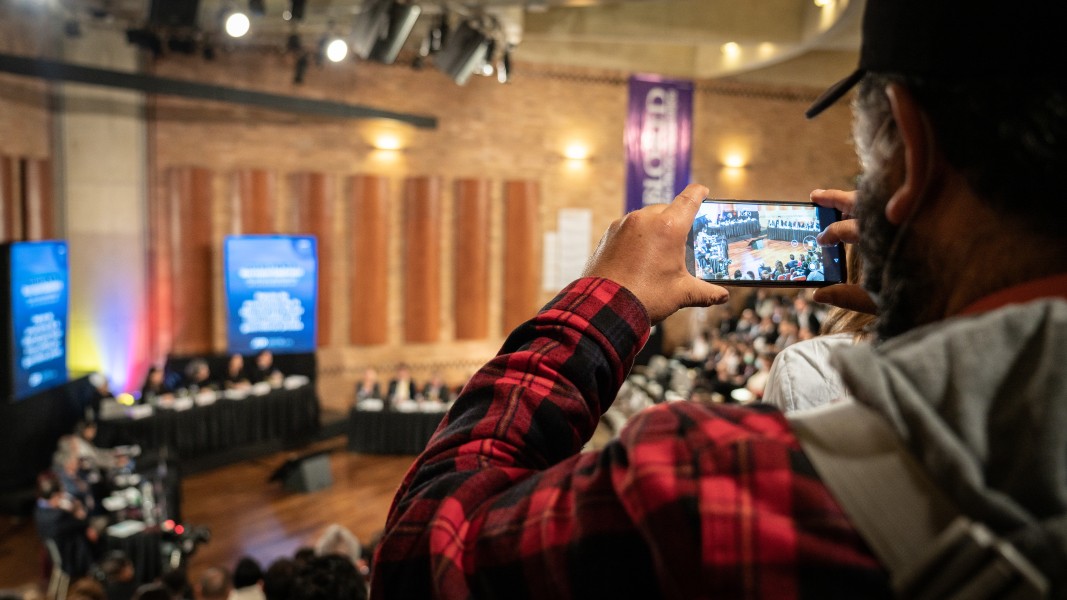New York, April 23, 2024—In the aftermath of armed conflict or repression, communities often struggle to rebuild social relations that have been damaged or destroyed by violence and abuse. Restorative justice can potentially play a valuable role in such societies, bringing together the people who have been harmed by crimes and the individuals responsible for those harms, often in the form of a dialogue, to address the offense and its consequences.
Today, ICTJ is launching a new research report that offers insight and guidance on the use of a restorative justice framework in responding to massive and grave human rights violations. The study, entitled “Transforming Social Relations: Restorative Responses to Massive Human Rights Violations,” draws primarily from experiences in Colombia, Sierra Leone, Tunisia, and the Philippines’ Bangsamoro region.
While transitional justice scholars and practitioners have often applied principles of restorative justice, there are few examples of transitional justice processes that explicitly incorporate restorative justice practices, especially those aimed at criminal accountability. There is also a general lack of understanding about what such integration means or requires.
“In conflict-torn contexts, restorative justice can help people rediscover reasons to believe in the shared values and norms of a pluralistic and inclusive society,” explained Anna Myriam Roccatello, ICTJ’s director of programs and deputy executive director. Through stakeholder participation, restorative justice initiatives are meant to foster acknowledgment of the harm done to victims and the responsibility of perpetrators. “In many ways, restorative justice is at the center of transitional justice,” Roccatello continued.
Colombia’s Special Jurisdiction for Peace (JEP) marks a watershed moment in the use of restorative justice in the transitional justice field. “The JEP really represents the first time that a judicial institution with the authority to prosecute and adjudicate gross violations of human rights and humanitarian law has explicitly applied a restorative justice approach to its work,” said Maria Camila Moreno head of ICTJ’s office in Colombia. The JEP is a criminal tribunal whose proceedings involve public acknowledgment of responsibility and harm as well as sanctions that include both restorative projects for victims and punitive measures for offenders.
In addition to the process underway in Colombia, the report considers other countries’ efforts that have included elements of restorative justice, even if the approach was not explicitly incorporated by name. The study's findings stress the importance of dialogue in the form of encounters between victims and perpetrators; the contribution of alternative or restorative sanctions in facilitating participation and repair; the need for integrity, legitimacy, and efficacy of process; and the complementarity of restorative justice with other peacebuilding and transitional justice processes.
The study contributes to the development of a more nuanced approach to accountability for human rights violations. It demonstrates that restorative justice can be part of societal responses to massive human rights violations in a range of ways, from the more institutional, national level to the less formal, local level. “Restorative justice shares with transitional justice a transformative vision,” said Roccatello. “The main challenge is to mend interpersonal relations in a way that restores the social fabric more broadly, thereby moving the entire society toward a more peaceful future.”
__________
PHOTO: Colombia’s Special Jurisdiction for Peace held its first acknowledgment hearing for Case 01 on June 21-23, 2022, in Bogotá. As a public encounter between victims and former leaders of the guerrilla group Revolutionary Armed Forces of Colombia–People’s Army, the event represented a decisive step in the country’s restorative justice process. The hearing was broadcasted on major and alternative media outlets and livestreamed on YouTube. (Maria Margarita Rivera/ICTJ)
